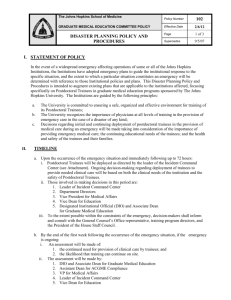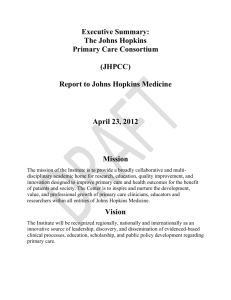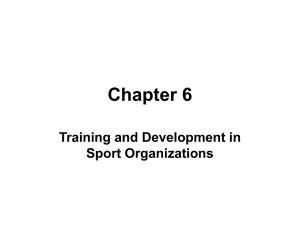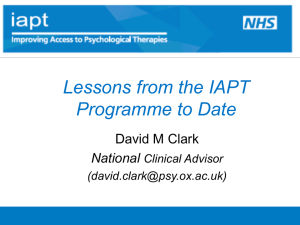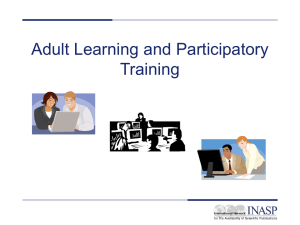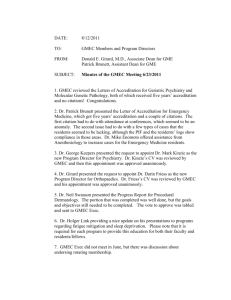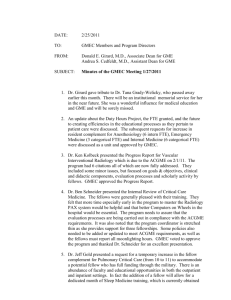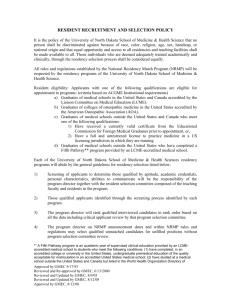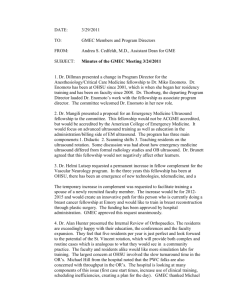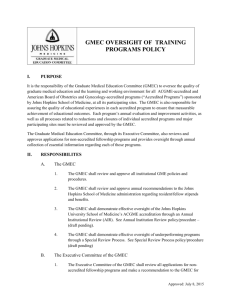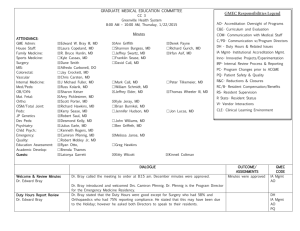Policy on External Funding of Residents and Clinical Fellows
advertisement
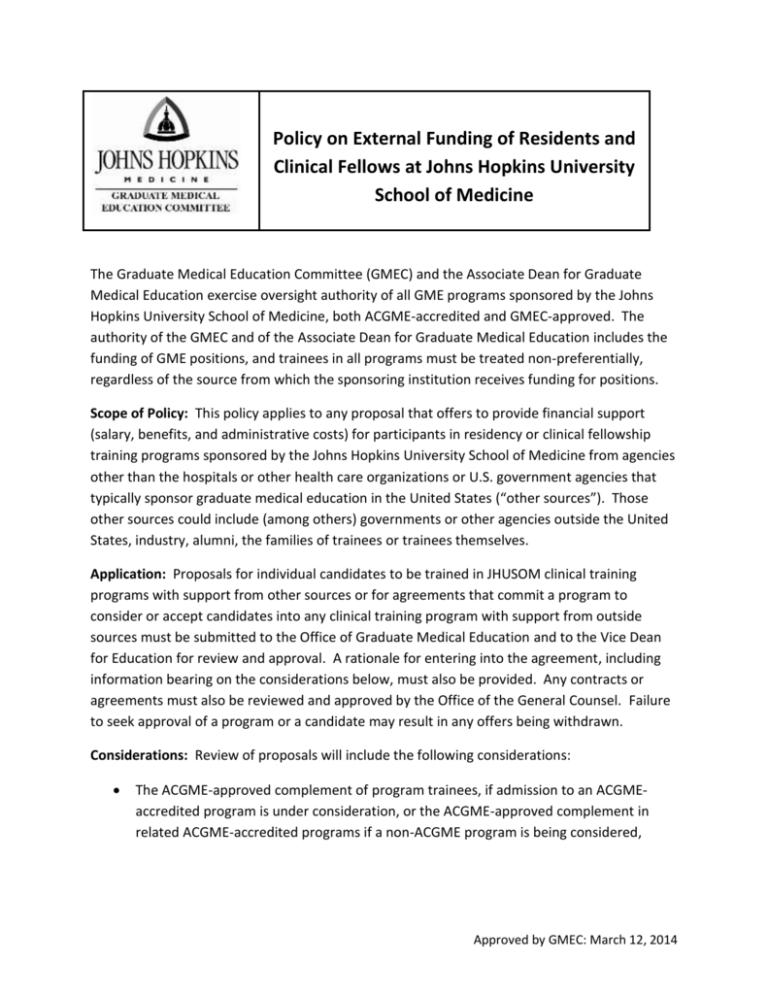
Policy on External Funding of Residents and Clinical Fellows at Johns Hopkins University School of Medicine The Graduate Medical Education Committee (GMEC) and the Associate Dean for Graduate Medical Education exercise oversight authority of all GME programs sponsored by the Johns Hopkins University School of Medicine, both ACGME-accredited and GMEC-approved. The authority of the GMEC and of the Associate Dean for Graduate Medical Education includes the funding of GME positions, and trainees in all programs must be treated non-preferentially, regardless of the source from which the sponsoring institution receives funding for positions. Scope of Policy: This policy applies to any proposal that offers to provide financial support (salary, benefits, and administrative costs) for participants in residency or clinical fellowship training programs sponsored by the Johns Hopkins University School of Medicine from agencies other than the hospitals or other health care organizations or U.S. government agencies that typically sponsor graduate medical education in the United States (“other sources”). Those other sources could include (among others) governments or other agencies outside the United States, industry, alumni, the families of trainees or trainees themselves. Application: Proposals for individual candidates to be trained in JHUSOM clinical training programs with support from other sources or for agreements that commit a program to consider or accept candidates into any clinical training program with support from outside sources must be submitted to the Office of Graduate Medical Education and to the Vice Dean for Education for review and approval. A rationale for entering into the agreement, including information bearing on the considerations below, must also be provided. Any contracts or agreements must also be reviewed and approved by the Office of the General Counsel. Failure to seek approval of a program or a candidate may result in any offers being withdrawn. Considerations: Review of proposals will include the following considerations: The ACGME-approved complement of program trainees, if admission to an ACGMEaccredited program is under consideration, or the ACGME-approved complement in related ACGME-accredited programs if a non-ACGME program is being considered, Approved by GMEC: March 12, 2014 The resources of the training program or department in which training is to occur, including faculty, patient number and diversity, availability of relevant procedures for trainees, space, and training sites. Potential contribution of proposed trainees to the training program and to the specialty or subspecialty, including educational contribution, cultural diversity, medical or surgical care practices. Physician workforce need in the country providing funding. Potential for proposed trainees to affect opportunities of U.S. medical school graduates or U.S. health care by occupying training positions in specialties or subspecialties that are facing workforce shortages in the U.S., Compliance with ACGME Eligibility Requirements as outlined in the Common Program Requirements if for an ACGME-accredited program, Potential to lead to relaxation of acceptance standards for particular individuals and/or to compromise the recruitment, selection, assessment and promotion policies of Johns Hopkins, Potential to create divisions among peer residents and fellows, Risk that the proposed contractual agreement will lead to a conflict of interest vis a vis trainees or faculty, Visa requirements. Procedure: Candidates who apply to an established clinical program (ACGME-accredited or GMEC-approved) under the terms of a validly executed agreement with JHUSOM will be considered and evaluated by the training program using the same process and procedures as for other candidates applying to the program. Decisions regarding their suitability for the program will be made by the training program using its usual procedure and applying the same criteria used to assess all other applicants. Once a proposal is approved by the relevant program director or faculty mentor, the proposed candidate’s application material and the program faculty’s assessment of the candidate’s qualifications for the program, as well as a description of the proposed training (ACGME-accredited or GMEC-approved, duration, curriculum, training sites) must be approved by the Associate Dean and the Vice Dean. Once approved, individual candidates will be enrolled, supervised, and assessed in the same manner as all other trainees and will be subject to the same policies and procedures, including those for promotion, termination, and discipline. Oversight: The Office of Graduate Medical Education will document participation of individual trainees supported by other sources and will maintain a record of all validly executed JHUSOM agreements with other sources. The program director or faculty mentor will provide a report to the GME Office annually describing the results of assessment of trainee(s) whose support Approved by GMEC: March 12, 2014 comes from other sources. The annual report shall also include an evaluation of the short- and long-term impact of the contractual agreement on the relevant residency or clinical fellowship program(s). A subcommittee of the GMEC will review the annual report with consideration for the program’s overall quality and its compliance with ACGME requirements, if applicable. The Office must be notified of any change in or termination of such agreements. Approved by GMEC: March 12, 2014
